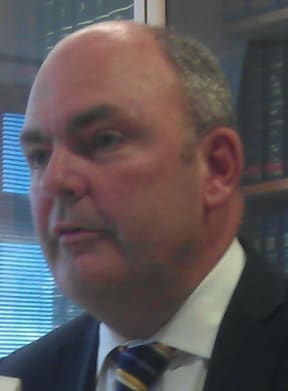Economic Development Minister Steven Joyce says New Zealand needs to be more open to foreign investment if it is to recover from an employment rate at its lowest in 10 years.

Steven Joyce. Photo: NATIONAL PARTY
The number of people in work fell by 23,000 in the final three months of 2012, driving the proportion of working age people with a job down to its lowest level in a decade, Statistics New Zealand's Household Labour Force Survey released on Thursday shows.
Mr Joyce says regions such as Taranaki and Canterbury are doing well and are rich in employment opportunities.
The minister told Radio New Zealand's Morning Report programme on Friday that to increase such opportunities, the country needs to be more open to foreign investment.
"The challenge is undeniably encouraging investment. The Australians put out their stats yesterday - if you look across Australia and New Zealand it's the regions in both countries that have big investments going on that are actually succeeding.
"So I think the signpost forward, irrespective of the vagaries of this data, is pretty straightforward - encourage more investment."
Mr Joyce says although people feel strongly about mining natural resources, it needs to be considered as a solution to finding more jobs.
Weak job figures questioned
Some economists believe a big fall in employment at the end of last year is painting an overly pessimistic picture of the jobs market.
BNZ economist Stephen Toplis says other data on the suggest the economy was stronger than that and actually created jobs last year.
"Business intentions are quite strong and that would be inconsistent with an exceptionally weak labour market.
"More obviously, consumers they're not lacking in confidence - and they would be if they were losing jobs hand over fist. The housing market's doing okay. No those things are what you'd expect if the labour market was as weak as these data would suggest."
A range of bank economists say the jobs figures are not believable as they belie other data on the economy which shows it in better shape.
But Council of Trade Unions secretary Peter Conway says while there may be some room to debate the detail of the latest figures, it is clear that the trend over the past year is worsening.
Fall in part-time jobs
The CTU says a downturn in the amount of part-time work could be behind some of the record number of people leaving the workforce.
The number who opted not to work or look for work rose by 33,000 in the December quarter of last year - the highest figure since at least 1986.
The Household Labour Force Survey suggests most of those who left the workforce last year were aged either 15 to 19 or over 65.
Union secretary Peter Conway says those age groups may be finding the job search particularly difficult as there has been a fall in part-time jobs.
Mr Conway says rising childcare costs are dissuading more parents from work, and there has been an increase in the number of older people retiring.
Some of the figures on young people suggest more are staying on in education, rather than looking for jobs.
Northland highest
The Northland Chamber of Commerce says more training is needed to tackle its high unemployment rate.
The Northland region has the nation's highest unemployment rate - 9.5%.
Chamber chief executive Tony Collins says there are jobs available but businesses are struggling to find people with the right skill sets.
Mr Collins says some people will have to re-train in different areas.

